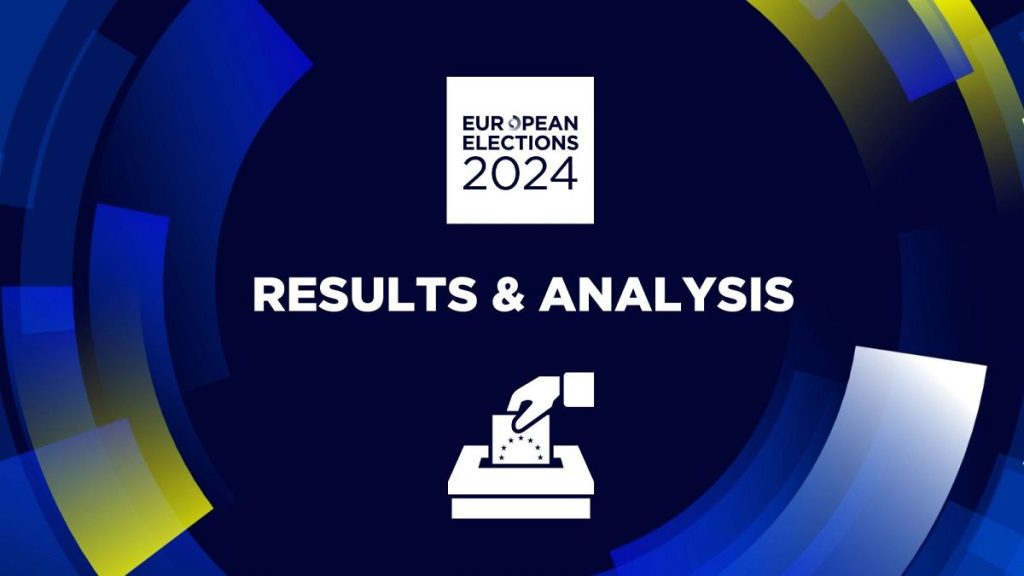The European Parliament elections have seen rising support for far-right parties across Europe, with Austria and Germany showing shifts to the right in the initial exit polls. In Austria, the far-right Freedom Party (FPÖ) has gained ground while in Germany, the Alternative for Germany party has seen an increase in support. The results of the elections are expected to weaken the pro-European majority in the European Parliament, with turnout standing at 64%. The Netherlands has also confirmed a swing to the right in its exit polls, with Geert Wilders’ PVV party projected to make gains.
With 373 million voters across 27 EU member states participating in the elections, it is the world’s largest multi-state democratic exercise. The election comes after a turbulent period marked by the Covid-19 pandemic, the invasion of Ukraine, and rising living costs. Opinion polls indicate that far-right parties are likely to come out on top in major countries, potentially weakening the pro-European establishment. Controversies have arisen during the campaign, such as a gaffe by a far-right MEP in Germany and newcomer Péter Magyar’s challenge to Prime Minister Viktor Orbán’s grip on power in Hungary.
The newly elected Members of the European Parliament will have several important tasks ahead of them. This includes approving the candidate to lead the European Commission, with current president Ursula von der Leyen seeking re-election. With no single party holding a majority in the European Parliament, coalitions will need to be formed issue-by-issue to pass legislation. The fate of the EU Green Deal, aimed at reducing carbon emissions, will be in the hands of the new MEPs.
The European Parliament composition consists of various political groups, with the centre-right European People’s Party and centre-left Socialists traditionally dominating the chamber. These groups lost their majority in the 2019 elections and have since had to form alliances with other parties. The 2024 elections are predicted to continue weakening the traditional center-right and center-left blocs’ hold on power, with the far-right gaining further ground. Each country is allocated a specific number of MEPs based on their population, ranging from 96 for Germany to six for countries like Cyprus, Malta, and Luxembourg.
This year’s elections mark the first time since 1979 that the UK will not be included in the count, as their 73 MEPs left after Brexit day in February 2020. The results of the elections will determine the makeup of the European Parliament for the next five years and will shape the legislative agenda in the European Union during a time of significant challenges and changes. The far-right’s growing support across Europe is a key factor in these elections, pointing towards a potential shift in the balance of power within the European Parliament.












